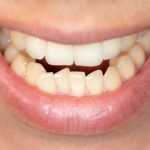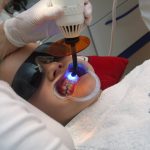Breaking the Problem: Why Are My Teeth Fragile and How to Prevent it?
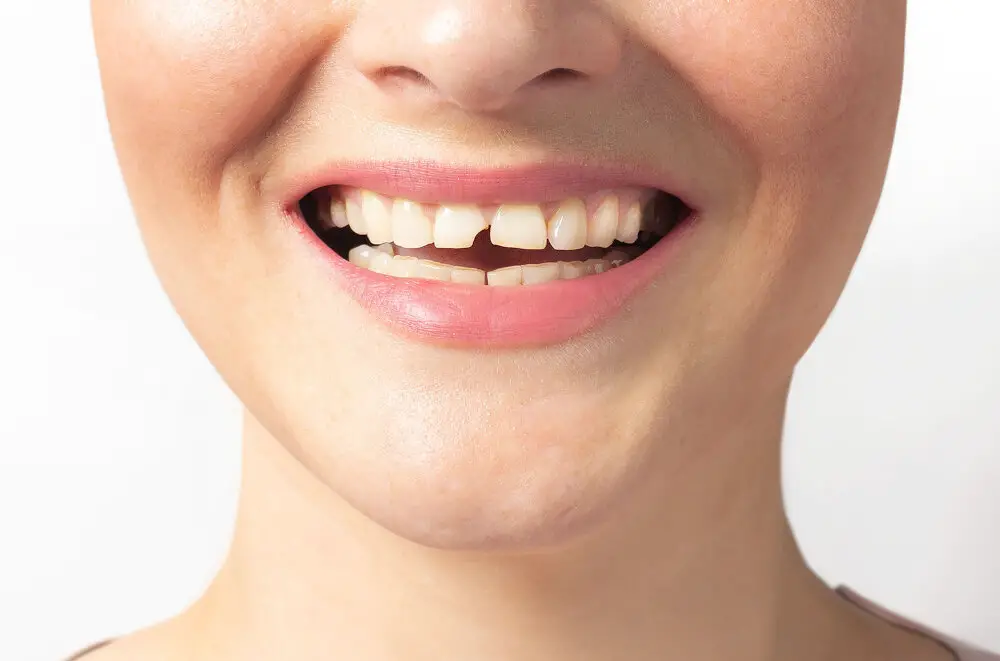
The teeth are one of the most essential components of the human body. They not only help in breaking down food for digestion but also play a significant role in maintaining an individual’s overall physical appearance. However, many people complain of having fragile teeth, which can lead to a host of dental problems. This issue can be attributed to various factors such as poor oral hygiene, genetic factors, and even certain medical conditions. Understanding the root cause of fragile teeth and adopting preventive measures can go a long way in maintaining good dental health. Fragile teeth can be a source of constant discomfort and pain for individuals. Not only does it hamper the ability to chew food properly, but it can also lead to tooth decay, cavities, and even tooth loss. It is crucial to recognize the symptoms of fragile teeth and take steps to prevent the condition from worsening. From maintaining good oral hygiene practices to making dietary changes, there are several measures one can take to strengthen their teeth and prevent them from becoming fragile. In this article, we will delve deeper into the causes of fragile teeth and explore some of the best prevention techniques to maintain good dental health.
Healthy teeth are essential for maintaining overall oral health and well-being. Teeth allow us to chew our food, speak properly, and maintain our facial structure. Neglecting proper dental care can lead to a host of oral health problems, including cavities, gum disease, and tooth loss. Moreover, poor oral health has been linked to various systemic health conditions, such as diabetes, heart disease, and stroke. By practicing good dental hygiene habits, such as brushing and flossing regularly, limiting sugary and acidic foods and drinks, and visiting the dentist for regular check-ups, we can help maintain strong and healthy teeth for a lifetime.
Tooth fragility is a condition where teeth are weak, brittle, and prone to breaking or chipping. It can be caused due to several reasons such as poor oral hygiene, excessive consumption of acidic foods and beverages, aging, and certain medical conditions. Poor oral hygiene can result in tooth decay, which weakens the tooth structure, making it prone to breakage. Excessive consumption of acidic foods and beverages erodes the enamel on the teeth, making them more fragile. As we age, our teeth become more brittle, and the chances of breakage increase. Certain medical conditions such as osteoporosis and vitamin D deficiency can also contribute to tooth fragility. Preventing tooth fragility requires maintaining good oral hygiene, limiting acidic foods and beverages, and addressing any underlying medical conditions.
The Science Behind Tooth Fragility

Tooth fragility can be caused by various factors, including poor oral hygiene, genetics, and certain medical conditions. One of the primary causes of tooth fragility is dental erosion, which occurs when the enamel on the teeth wears away due to exposure to acidic substances. This can be caused by consuming acidic foods and drinks, such as citrus fruits, soda, and wine, as well as by frequent vomiting, which can occur in people with eating disorders or those undergoing chemotherapy. Additionally, tooth decay and gum disease can lead to tooth fragility, as they weaken the teeth and gums, making them more susceptible to breaking or chipping. Overall, understanding the science behind tooth fragility is crucial in preventing it and maintaining a healthy smile. Preventing tooth fragility involves maintaining good oral hygiene practices, such as brushing and flossing regularly, using fluoride toothpaste, and visiting the dentist for regular check-ups and cleanings. Additionally, avoiding acidic foods and drinks and practicing healthy eating habits can help protect the teeth. In some cases, dental treatments such as fillings, crowns, or veneers may be necessary to repair or strengthen fragile teeth. Ultimately, by understanding the causes of tooth fragility and taking steps to prevent it, individuals can protect their teeth and maintain a healthy smile for years to come.
Understanding the anatomy of teeth is crucial in comprehending the reasons why teeth become fragile and how to prevent it. A tooth is composed of three layers: enamel, dentin, and pulp. Enamel, the outermost and hardest layer, is the protective coating covering the crown of the tooth. Dentin, the middle layer, is softer and more porous than enamel and comprises the majority of the tooth structure. The pulp, located in the innermost layer, is where the nerves and blood vessels are located. The health of these layers is critical in maintaining strong and healthy teeth. Poor oral hygiene, acidic foods, and certain medications can cause erosion of enamel and dentin, leading to fragile teeth. It is essential to maintain good oral hygiene practices, consume a balanced diet, and visit the dentist regularly to prevent tooth fragility.
Tooth fragility can be caused by various factors, including poor oral hygiene practices, frequent consumption of acidic foods and drinks, aging, and certain medical conditions such as osteoporosis. Poor oral hygiene practices such as infrequent brushing and flossing can lead to the buildup of plaque and tartar, which can weaken the enamel and cause tooth decay. The frequent consumption of acidic foods and drinks, such as citrus fruits and soda, can erode the enamel and make teeth more susceptible to fractures and chips. As we age, our teeth naturally become more brittle and prone to damage. Additionally, medical conditions like osteoporosis can reduce bone density, including the jawbone, which can lead to tooth loss and fragility. By understanding these contributing factors, individuals can take steps to prevent tooth fragility and maintain optimal oral health.
Genetics plays a crucial role in tooth health, as the structure and composition of teeth are determined by our genetic makeup. Some individuals may inherit weaker enamel, making their teeth more susceptible to decay and damage. Additionally, genetic factors can influence the shape and alignment of teeth, which can impact overall oral health. However, while genetics may predispose individuals to certain dental conditions, it is important to note that proper dental hygiene and preventative care can greatly reduce the risk of tooth decay and other oral health issues. Regular brushing, flossing, and dental check-ups are essential for maintaining healthy teeth and gums, regardless of genetic factors.
Lifestyle Habits That Affect Tooth Health

Taking care of your teeth is an essential part of maintaining good oral health. However, many people often overlook the impact that their lifestyle habits can have on their teeth. Certain lifestyle habits such as smoking, excessive alcohol consumption, and poor diet choices can negatively affect the health of your teeth, making them more fragile and susceptible to decay. Smoking is a significant contributor to tooth decay and gum disease. The chemicals found in cigarettes can lead to the buildup of plaque and tartar, which can erode tooth enamel and cause cavities. Additionally, smoking can reduce blood flow to the gums, making it harder for the body to fight off infections. Excessive alcohol consumption can also lead to tooth decay and gum disease. Alcohol dries out the mouth, reducing saliva production, which can increase the risk of tooth decay. Furthermore, alcohol is high in sugar, which can fuel the growth of harmful bacteria in the mouth. To maintain healthy teeth, it’s essential to limit or avoid smoking and excessive alcohol consumption.
The diet we consume has a significant impact on the health of our teeth. Consuming a diet high in sugar and starches can lead to tooth decay and cavities, as these substances feed the harmful bacteria in our mouths. Additionally, acidic foods and drinks can erode tooth enamel, making teeth more susceptible to damage and decay over time. Conversely, a diet rich in calcium, phosphorus, and vitamin D can strengthen teeth and promote healthy tooth development. By maintaining a balanced diet and limiting sugary and acidic foods and drinks, we can protect our teeth and promote overall oral health.
Proper dental hygiene is of utmost importance in maintaining healthy teeth and gums. Regular brushing and flossing help remove food particles and plaque that can lead to tooth decay and gum disease. Poor oral hygiene can also cause bad breath and stain teeth, which can affect one’s confidence and self-esteem. It is recommended to brush at least twice a day and floss once a day to keep teeth and gums healthy. Additionally, visiting the dentist regularly for check-ups and cleanings can help identify and prevent potential dental issues. By prioritizing proper dental hygiene, individuals can maintain strong, healthy teeth and gums for a lifetime.
Smoking and alcohol consumption have detrimental effects on oral health. Smoking is known to cause gum disease, tooth discoloration, bad breath, and oral cancer. The chemicals in tobacco smoke weaken the immune system, making it harder for the body to fight off infections that can lead to gum disease. Alcohol, on the other hand, can cause dry mouth, which increases the risk of tooth decay and gum disease. It can also erode the enamel on teeth, making them more susceptible to cavities. Furthermore, heavy alcohol consumption can increase the risk of oral cancer. Reducing or quitting smoking and alcohol consumption can significantly improve oral health and prevent long-term damage.
Medical Conditions That Affect Tooth Health
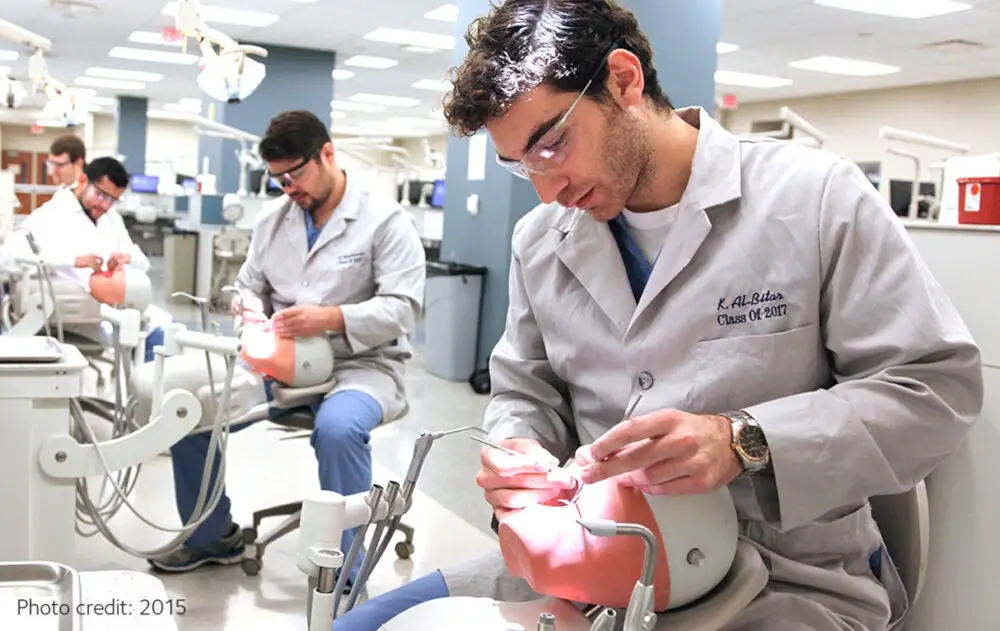
There are several medical conditions that can affect the health of your teeth, leading to fragility, decay, and even tooth loss. One of the most common conditions that affect tooth health is diabetes. High levels of blood sugar can weaken the teeth and gums, making them more vulnerable to infection and decay. Additionally, individuals with diabetes may experience dry mouth, which can further increase the risk of tooth decay and gum disease. Managing blood sugar levels through a healthy diet, regular exercise, and medication can help prevent these tooth-related complications. Another medical condition that can affect tooth health is osteoporosis. This condition causes the bones to become weak and brittle, including the jawbone that supports the teeth. As a result, individuals with osteoporosis may experience tooth loss, gum disease, and other dental problems. In addition to managing osteoporosis through medication and lifestyle changes, it’s important to maintain good oral hygiene habits, such as brushing and flossing regularly, to prevent further damage to the teeth and gums. Understanding how medical conditions can impact tooth health is essential for maintaining strong and healthy teeth throughout your life.
Tooth fragility can be linked to various medical conditions, including osteoporosis, celiac disease, and bulimia. Osteoporosis is a condition where the density and quality of bones are reduced, leading to weaker bones, including the jawbone, which can cause tooth loss. Celiac disease is an autoimmune disorder that affects the small intestine, leading to malabsorption of nutrients, including calcium and vitamin D, which are essential for healthy teeth. Bulimia, an eating disorder characterized by binge-eating followed by purging, can lead to erosion of tooth enamel due to frequent exposure to stomach acid. It is crucial to address these medical conditions to prevent tooth fragility and maintain optimal oral health.
Medications can have a significant impact on tooth health. Certain antibiotics, such as tetracycline and doxycycline, can cause tooth discoloration and weaken the enamel, making teeth more susceptible to decay. Antihistamines and decongestants can reduce saliva production, which is essential for neutralizing acids and bacteria in the mouth. This reduction in saliva can lead to dry mouth, which can ultimately result in tooth decay and gum disease. Chemotherapy drugs can also affect tooth health, causing mouth sores, infection, and even tooth loss. It is crucial to inform your dentist of any medications you are taking to ensure proper dental care and prevention of tooth decay.
Regular dental checkups are crucial in maintaining good oral health and preventing dental problems. These checkups allow dentists to detect any potential issues such as gum disease, cavities, or tooth decay at an early stage, which can be treated before they become more serious and costly to fix. Additionally, regular dental cleanings can remove plaque buildup and stains that cannot be removed by brushing alone. Neglecting regular checkups can result in issues that require more extensive and expensive treatments, and in some cases, irreversible damage to teeth and gums. Therefore, it is important to prioritize regular dental checkups as part of one’s overall health and wellness routine.
Preventative Measures for Tooth Fragility
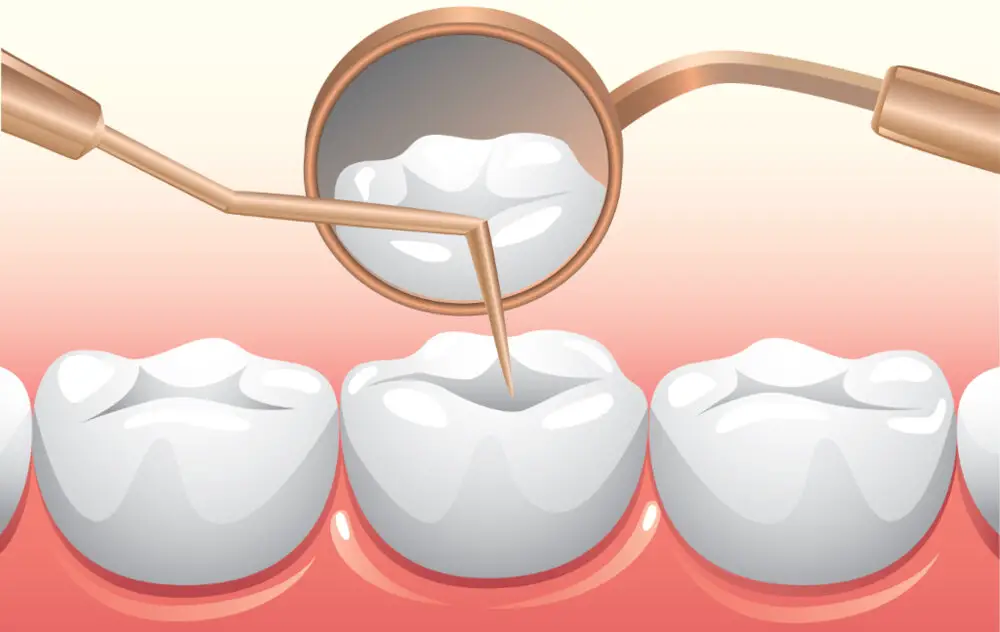
Tooth fragility can be a major concern for many people, as it can lead to discomfort, pain, and even tooth loss. However, there are preventative measures that can be taken to help keep teeth strong and healthy. One of the most important steps is to maintain a good oral hygiene routine, including brushing twice a day and flossing regularly. This can help to remove plaque and bacteria that can weaken teeth and cause decay. Additionally, using a fluoride toothpaste can help to strengthen tooth enamel and protect against decay. Another preventative measure for tooth fragility is to avoid consuming sugary or acidic foods and drinks. These can erode tooth enamel and weaken teeth over time. Instead, opt for foods that are high in calcium and other nutrients that can help to strengthen teeth, such as dairy products, leafy greens, and nuts. It is also important to avoid using teeth as tools to open packages or bite nails, as this can cause chips and cracks. By taking these preventative measures, individuals can help to protect their teeth from fragility and maintain a healthy, beautiful smile.
Maintaining a healthy diet and lifestyle is crucial to promote tooth health and prevent fragility. Consuming a diet rich in calcium, phosphorus, and vitamin D can strengthen teeth and bones. Foods like milk, cheese, yogurt, leafy greens, and fatty fish are excellent sources of these nutrients. Additionally, limiting sugary and acidic foods and beverages can prevent erosion of tooth enamel. Good oral hygiene practices, including brushing twice a day, flossing daily, and using a fluoride mouthwash, can also help prevent tooth decay and gum disease. Avoiding smoking and excessive alcohol consumption can also reduce the risk of oral health issues. Making these dietary and lifestyle changes can help maintain strong and healthy teeth for a lifetime.
Proper dental hygiene practices are crucial in maintaining healthy teeth and preventing their fragility. Brushing your teeth at least twice a day using fluoride toothpaste, flossing daily, and rinsing your mouth with an antiseptic mouthwash can help remove plaque and bacteria that cause tooth decay and gum disease. Additionally, avoiding sugary and acidic foods and drinks, quitting smoking, and visiting your dentist regularly for cleanings and check-ups can significantly reduce the risk of tooth fragility. By incorporating these habits into your daily routine, you can ensure that your teeth remain strong and healthy for years to come.
Several dental treatments and procedures can strengthen teeth, including fluoride treatments, dental sealants, and dental bonding. Fluoride treatments involve the application of a fluoride gel or varnish to the teeth, which helps to remineralize and strengthen tooth enamel. Dental sealants are thin coatings that are applied to the chewing surfaces of the back teeth to create a barrier against decay-causing bacteria. Dental bonding involves the application of a tooth-colored resin material to the surface of the teeth to repair damage and strengthen the tooth structure. Additionally, maintaining good oral hygiene habits, such as brushing twice a day and flossing regularly, can help to prevent tooth decay and keep teeth strong and healthy.
Tooth fragility is a common problem that can be caused by a variety of factors. The most common cause of tooth fragility is poor oral hygiene, which can lead to the buildup of plaque and tartar on the teeth. Other factors that can contribute to tooth fragility include a diet high in sugar and acid, grinding or clenching of the teeth, and certain medical conditions such as osteoporosis. To prevent tooth fragility, it is important to practice good oral hygiene, including brushing and flossing regularly, avoiding sugary and acidic foods and drinks, and wearing a mouthguard if you grind or clench your teeth. Additionally, regular dental checkups and cleanings can help identify and address any potential issues before they become serious problems.
Regular dental checkups and professional care are essential for maintaining healthy teeth and gums. These checkups provide an opportunity to identify and address any potential issues before they become more serious. Professional cleanings remove plaque and tartar buildup that can lead to tooth decay and gum disease. Additionally, regular checkups allow for early detection of oral cancer, which can be life-saving. Failure to maintain regular dental visits can lead to a host of oral health problems, including cavities, gum disease, and tooth loss. Therefore, it is crucial to prioritize dental care and schedule regular checkups with a dental professional to prevent dental problems and maintain optimal oral health.
In conclusion, maintaining healthy teeth is essential for overall oral health and preventing tooth fragility. It is crucial to follow a daily oral hygiene routine, which includes brushing twice a day with fluoride toothpaste, flossing, and using mouthwash. Additionally, a balanced diet with limited sugary and acidic foods can help prevent tooth decay and erosion. Regular dental check-ups and cleanings can also aid in identifying any dental issues and preventing them from progressing. By adopting healthy habits and taking care of our teeth, we can prevent tooth fragility and maintain a beautiful, healthy smile for years to come.
Conclusion

In conclusion, fragile teeth can be caused by a variety of factors, including poor oral hygiene, acidic diets, genetics, and certain medical conditions. However, by taking proactive steps such as brushing and flossing regularly, using fluoride products, avoiding sugary and acidic foods, and visiting the dentist regularly, individuals can prevent and even reverse tooth fragility. It is essential to prioritize dental health to maintain strong and healthy teeth for a lifetime. By breaking down the problem and understanding its causes, we can take the necessary steps to prevent fragile teeth and maintain a bright and healthy smile.



